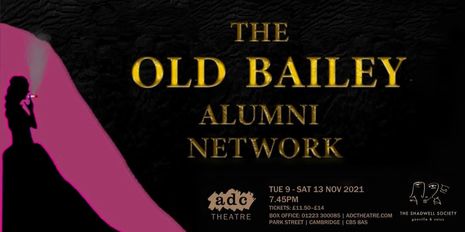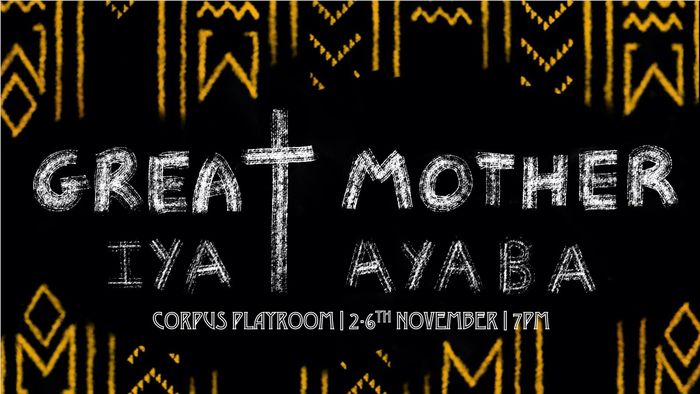Previewing: The Old Bailey Alumni Network
Director Dixie McDevitt previews this week’s ADC mainshow, The Old Bailey Alumni Network

Devised theatre is always a leap of faith — and it is even more so in a busy Cambridge term, as we try desperately to steal some free moments to create a production from scratch in a matter of weeks. So why do it? I think there is something so generative about this form of theatre; it gives such an opportunity for actors and crew members alike to think about what they think theatre ought to be, and to have a go at putting that into effect. Directing The Old Bailey Alumni Network has been a wild ride, and has tested my faith to the max — facing a main slot at the ADC before you even have a script, or know what on earth the show is going to look like can be completely overwhelming. But it has been constantly surprising and rewarding, too, as the cast has stepped up to the task heroically and have collaboratively created a show that will certainly be a unique experience.
“I was gobsmacked by the sheer diversity of voices that are stored in those archives”
People keep asking me what this show is — and it’s something that’s difficult to communicate simply via a poster, something that is certainly not self-explanatory. Basically, it all started when I stumbled across the Old Bailey Online Proceedings — a completely open database of archived court cases, spanning from the 1600s to the 1920s. I was gobsmacked by the sheer diversity of voices that are stored in those archives, and the fact that we have access to the real words of people who have been historically marginalised in London: queer Londoners, BIPOC Londoners, working class Londoners, immigrants and sex workers all, quite literally, had their day in court. The only conclusion you can draw from reading these testimonies is that London in the eighteenth century was much more diverse, queer and rule-breaking than the Austenian culture we have grown accustomed to in mainstream media.
We have worked with an array of transcripts, and let our imaginations fly about the memories, relationships and personalities of people who are only remembered as criminals, tried at the Old Bailey Courthouse. The result is, I would say, unexpectedly jubilant and fun. The show is set at an imaginary party, thrown for the ghosts of those tried at the Old Bailey, and at this party we have an open bar and a live DJ spinning classical/hip hop mashups that are incredibly creative (courtesy of Eliza Pepper, the production’s resident DJ). At this party, the characters can then reminisce about their pasts, and confront old resentments, all while dressed up to the nines (in Ella Muir’s beautifully curated costumes) and while holding a flagon of mead. There are, of course, moments in this play that confront the intersectional issues of injustice and prejudice that are quite heartbreaking — but there is also such catharsis in the way this brilliant cast have given voice to these real people, and have in the process researched and got to know their characters as more than defendants. We have tried to approach these moments by blending verbatim theatre with spoken word written by our own cast, to place emphasis on the fact that these archives only show us a glimpse of the whole person. I feel quite emotional that these few people, plucked from a vast array of archived defendants, have not been forgotten about.
 News / Cambridge study finds students learn better with notes than AI13 December 2025
News / Cambridge study finds students learn better with notes than AI13 December 2025 News / Cambridge Vet School gets lifeline year to stay accredited28 November 2025
News / Cambridge Vet School gets lifeline year to stay accredited28 November 2025 Science / Did your ex trip on King’s Parade? The science behind the ‘ick’12 December 2025
Science / Did your ex trip on King’s Parade? The science behind the ‘ick’12 December 2025 News / Uni Scout and Guide Club affirms trans inclusion 12 December 2025
News / Uni Scout and Guide Club affirms trans inclusion 12 December 2025 Arts / Modern Modernist Centenary: T. S. Eliot13 December 2025
Arts / Modern Modernist Centenary: T. S. Eliot13 December 2025









